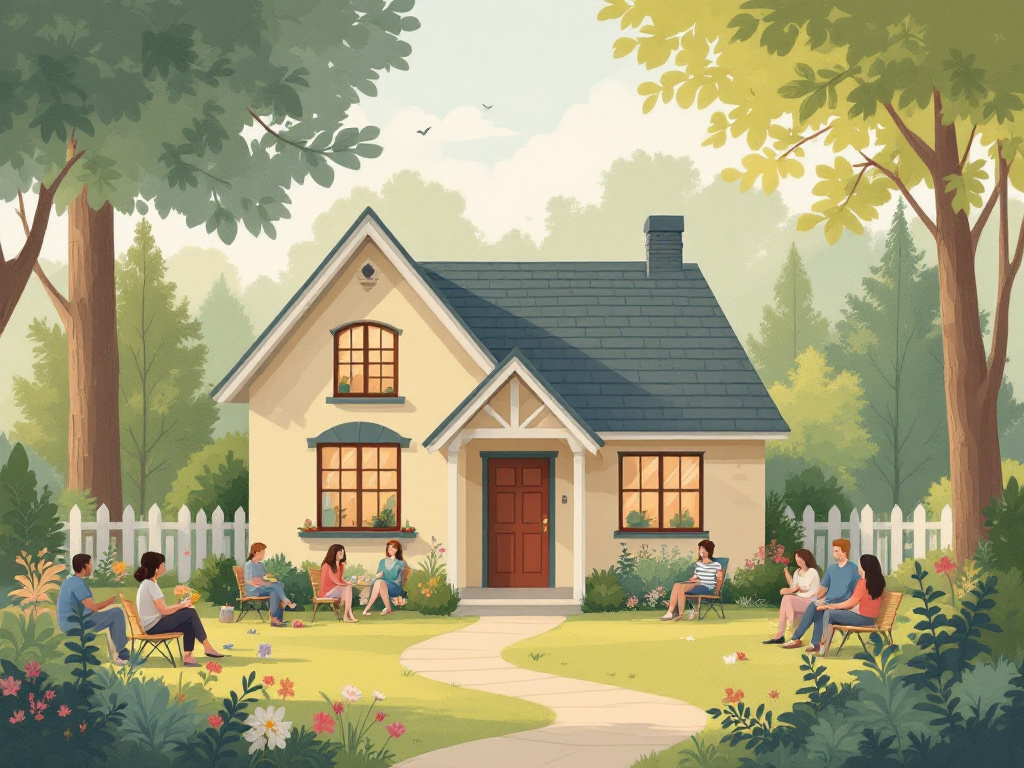Choosing a residential treatment program in Virginia can feel like a major life decision. When you commit to a program in a behavioral health residential facility, you gain access to 24-hour clinical supervision, therapeutic housing, and structured care designed for adults facing mental health or substance use challenges. In a residential substance use treatment program, you’ll find the stability, safety, and individualized attention necessary to start building lasting recovery.
Throughout this article, you’ll learn about the top benefits of a residential treatment program in Virginia. From continuous professional oversight to smooth transitions into outpatient care, we’ll explore how these programs lay a strong foundation for long-term wellness. By the end, you’ll know why stepping into residential care might be the right path forward for your recovery journey.
Understand residential treatment programs
What is residential care?
Residential treatment programs offer a live-in environment where you receive round-the-clock support from clinicians, counselors, and peer mentors. Unlike outpatient services, you reside on-site for the duration of your stay, immersing yourself in evidence-based therapies, medical oversight, and peer-driven activities. This level of structure helps stabilize acute symptoms and fosters focus on recovery without outside distractions.
Who can benefit?
- Adults needing stabilization for substance use or mental health disorders
- Individuals with co-occurring conditions requiring integrated care
- Those who have struggled with outpatient compliance
- People seeking a supportive community during early recovery
Whether you’re overcoming alcohol dependency, managing anxiety or depression, or addressing trauma, a residential approach can provide the safe, structured environment you need to make meaningful progress.
Access 24-hour clinical care
Continuous professional supervision
In a residential setting, clinicians and medical staff are available around the clock. You benefit from:
- Regular health assessments and medication management
- Immediate response to crises or withdrawal symptoms
- Ongoing risk evaluation to keep you safe
This level of oversight distinguishes 24 hour supervised residential care from other treatment options, ensuring that you’re supported at every hour of the day.
Safe and structured setting
Residential programs remove you from high-risk environments and triggers. You’ll live in a setting designed for recovery, with:
- Secured access and monitoring
- Scheduled meals, therapy sessions, and recreation
- Clear house rules that promote accountability
By reducing exposure to substance-related cues and stressors, you can focus on healing within a consistently supportive atmosphere.
Utilize structured therapeutic housing
Daily routines for recovery
Structured housing fosters healthy habits through predictable schedules. Typical daily routines include:
- Morning wellness check-ins and group meetings
- Individual and group therapy blocks
- Recreational activities like yoga, art or fitness
- Evening reflections and peer support circles
These routines build discipline and offer repeated practice of coping skills in a safe environment.
Peer connections and support
Living alongside others on a similar path creates natural camaraderie. You’ll:
- Share experiences during therapeutic housing for mental illness style group activities
- Develop accountability through peer-led check-ins
- Build a sober network that extends beyond your stay
This sense of belonging can be a powerful motivator as you navigate the challenges of early recovery.
Receive individualized treatment plans
Evidence-based therapies
A key advantage of residential care is access to comprehensive residential counseling and therapy services, such as:
- Cognitive-behavioral therapy (CBT)
- Dialectical behavior therapy (DBT)
- Trauma-focused therapies
- Holistic approaches (yoga, mindfulness, nutrition)
Each modality is selected based on your unique history, symptoms, and goals to maximize effectiveness.
Co-occurring disorder support
If you’re facing both a mental health condition and substance use issues, integrated dual-diagnosis care is crucial. In a dual diagnosis residential treatment virginia setting, you receive:
- Coordinated treatment plans addressing both disorders
- Medication management for psychiatric conditions
- Specialized group sessions on coping strategies
This concurrent approach helps prevent one condition from undermining progress in the other.
Improve long-term sobriety outcomes
Duration and success rates
Research shows that longer residential stays often lead to better outcomes. Programs typically range from 90 days to six months or longer, depending on your needs [1]. Studies indicate:
- Spending at least 90 days in treatment can increase your chance of sustained sobriety
- Six- to twelve-month programs often yield further gains in coping skills and relapse prevention
Research highlights
- Relapse rates for individuals in recovery hover around 40–60%, but extended treatment can mitigate this risk [2].
- Less than 43% of people who enter treatment complete a program, underscoring the value of supportive environments that encourage retention.
- Veterans’ residential programs, operating in over 120 sites nationwide, demonstrate the importance of round-the-clock care in addressing PTSD, substance use and other mental health disorders [3].
| Program length | Key benefit |
|---|---|
| Up to 90 days | Initial stabilization, withdrawal management |
| 90 days | Foundation of coping strategies |
| 6–12 months | Deep therapeutic work, sustainable habit-change |
Ensure smooth care transitions
Structured transitional housing
To maintain momentum after residential treatment, you can step into structured transitional housing for recovery. There, you’ll:
- Practice independent living skills
- Attend continued group and individual therapy
- Stay connected to peers and mentors
This bridge between residential and outpatient care reduces the risk of relapse by providing ongoing support.
Outpatient continuum
Many programs offer a graduated step-down approach through a residential aftercare and step down program. As you progress, you’ll:
- Shift from full-time on-site care to part-time outpatient sessions
- Continue medication management and counseling
- Build community connections through sober living and support groups
A clear continuum of care ensures you never lose access to the resources you need.
Explore insurance-covered options
Accepted insurance plans
Most long-term residential treatment is covered by health insurance. Depending on your provider and plan, you may find:
- Partial or full coverage for stays of 90 days or more
- In-network agreements that lower your out-of-pocket costs
- Coverage for co-occurring disorder treatment
Epic Health works with major carriers to offer an insurance covered residential program, making quality care more accessible.
Financial assistance
If you’re underinsured or uninsured, ask about:
- Sliding-scale fee structures
- State-funded grants or scholarships
- Payment plans through affordable residential treatment services
Financial barriers should not stand in the way of your recovery—many programs offer solutions to fit your budget.
Take next steps
Contact Epic Health
Epic Health’s evidence-based residential care program blends clinical expertise, therapeutic housing and continuous support. When you reach out, you’ll:
- Complete a confidential intake assessment
- Review personalized treatment options
- Learn about insurance verification and financial aid
What to expect
Once you’re enrolled, you can anticipate:
- A comprehensive evaluation by medical and mental health professionals
- A tailored care plan combining individual therapy, group sessions and holistic services
- A safe, supportive community focused on your recovery goals
Embarking on a residential treatment program in Virginia may be one of the most empowering choices you make. With structured care, 24-hour clinical oversight and a clear path to continued support, you’ll gain the tools and confidence needed for lasting change. If you’re ready to transform your life, contact Epic Health today.







